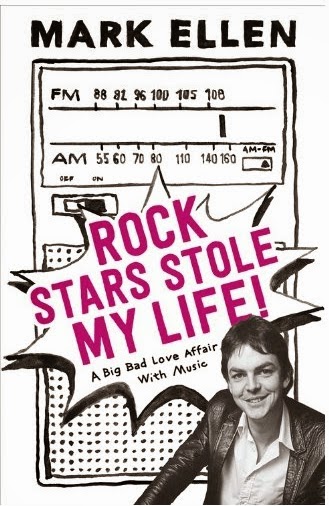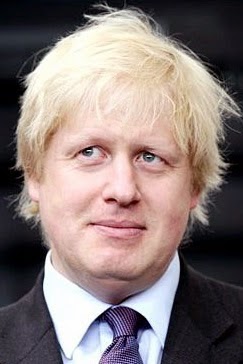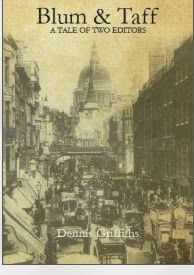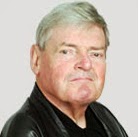Rod Liddle in the Sunday Times [£]: "I reckon that UKIP’s rather impressive performance last week will one day be put down to the 'Jasmine effect'. On the eve of the elections, this senior figure at the BBC’s impartial and even-handed news channel tweeted the following: “#WhyImVotingUkip — to stand up for white, middle class, middle aged men w sexist/racist views, totally under represented in politics today. The BBC got very embarrassed and removed her from the election coverage forthwith, so I assume she is now sitting at home being paid by you and me for doing nothing at all. It’s a step forward, I suppose. But the wider effect of that tweet, and all the acres of stuff from people like Jasmine, will have been to boost UKIP’s vote considerably. The Jasmine effect, then."
Will Self on Rod Liddle, in the Guardian: "Liddle is a typical petit bourgeois, afraid of either being absorbed into the proletariat he champions, or destroyed by the capitalist bogeyman he excoriates but depends on for his wonga."
 Matthew Parris in The Times [£] on Ukip: "If anything, indignation bears an inverse relationship to justification. In my own party it increases, too, with age, and especially among those who are no longer earning a living but imagine — usually from reading the newspapers — that they speak for those who are. Immigration has had a more profound impact on London than anywhere else, so is London awash with purple and yellow? On Thursday London said “no thanks” to Ukip. Few in the Derbyshire Peak District have ever knowingly seen a Bulgarian in the flesh. But you’ll find more indignation about Bulgarians in Buxton than in Battersea. Somebody needs to point out these truths."
Matthew Parris in The Times [£] on Ukip: "If anything, indignation bears an inverse relationship to justification. In my own party it increases, too, with age, and especially among those who are no longer earning a living but imagine — usually from reading the newspapers — that they speak for those who are. Immigration has had a more profound impact on London than anywhere else, so is London awash with purple and yellow? On Thursday London said “no thanks” to Ukip. Few in the Derbyshire Peak District have ever knowingly seen a Bulgarian in the flesh. But you’ll find more indignation about Bulgarians in Buxton than in Battersea. Somebody needs to point out these truths."Kevin Maguire @Kevin_Maguire on twitter: "I knew Patrick O'Flynn when he was a journalist. Now he is a Ukip MEP. How did it go so wrong for him?"
Daily Mail in a leader: "As for the BBC, mouthpiece of metropolitan liberalism, we offer one thought: the more it insults and patronises the core conservative majority, the more of that majority will be tempted to vote Ukip."
Nick Cohen in Standpoint magazine: "Here is what no one, not even Steve Jobs or Bill Gates understood: the web would indeed set people free. It would empower the masses and tear down hierarchies. But once the web had destroyed the old funding model for journalism, no one would take the place of the reporters who trudged along to crime scenes, meetings and court cases. It turned out that unless a news organisation trained people to do it, paid them to do it and ordered them to do it, no one would want to do a difficult and at times boring job for nothing."
 |
| Gareth Jones' 1933 famine report in the Evening Standard |
Ben Macintyre in The Times [£] on journalist Gareth Jones who exposed the famine in the Ukraine in the 1930s caused by Stalin’s forced collectivisation of agriculture: "Gareth Jones is finally getting the recognition he deserves, as a journalist who perished in search of the truth and whose reporting changed the world, and shapes it still."
Johnston Press chief executive Ashley Highfield on the company's refinancing package, as reported by Press Gazette: "We’ve been effectively working for the banks for the past five years. And [we] now have them off our backs."
Jeremy Clarkson @JeremyClarkson on Twitter: "I'm amazed sometimes the People manages to get the football scores right."
John Humphrys, as quoted by Press Gazette: “As to my advice for aspiring journalists.... that's easy. Don't do it! I am deeply pessimistic for the future of serious print journalism and I tell my own children and grandchildren to train for a profession where they're more likely to get a decent job with some hope of security.”
Jeremy Paxman on why he had decided to leave Newsnight, at the Hay Festival as reported by The Times diary [£]: “I got fed up of listening to bollocks.”
Anne Pickles @AnnePickles on Twitter: "Aspiring young journos: Forget grumpy old men John Humphrys & Jeremy Paxman. Journalism is alive &well. Just do a better job than they did."
[£] = Paywall
























































